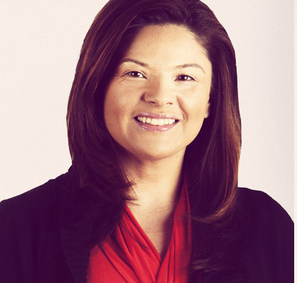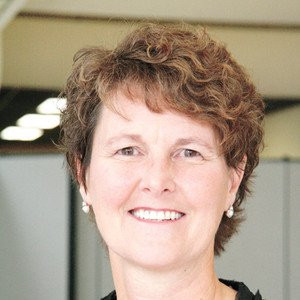Groups Call for RIDE to Reverse Policies on PARCC Scores
Friday, November 20, 2015
A dozen organizations have called on the state Department of Education to reverse its policies that allow school districts to use PARCC scores in a punitive manner against students as early as next year. The organization called the reversal "a necessary step to promote a meaningful discussion of alternative graduation standards in the months ahead.
Read a Copy of the Letter sent to Commissioner Wagner HERE
The following statement was issued by the Coalition to Defend Public Education, NAACP Providence Branch, RI Chapter of the National Association of Social Workers, ACLU of Rhode Island, Young Voices, RI Disability Law Center, Providence Student Union, Providence Youth Student Movement, Parents Across Rhode Island, RI Teachers of English Language Learners, Youth Pride Inc. and the George Wiley Center.
The statement in its entirety is below.
GET THE LATEST BREAKING NEWS HERE -- SIGN UP FOR GOLOCAL FREE DAILY EBLAST"Though not surprising, the test results released this week show that using PARCC as a graduation requirement would have barred the vast majority of Rhode Island students from receiving a diploma. Worse, and just like the NECAP, it would have disproportionately affected students of color, students with disabilities, and ESL students in a devastating manner.
Commissioner Ken Wagner has acknowledged a need to reexamine the use of high stakes testing and to consider alternative measures. We agree, and we appreciate the fact that he has started an important dialogue on the issue.
Unfortunately, something important has been left unsaid: RIDE policies initiated by former Commissioner Deborah Gist give school districts the power to incorporate PARCC scores into students’ grades as early as next year, and to also use the test as a high stakes graduation requirement for the Class of 2017 even though RIDE often talks about test results not having such an impact until 2020. As long as the imminent use of PARCC scores to punish students remains on the table, the anxiety and controversy that this testing and its predecessor, the NECAP, have generated will not fade away. These policies serve as an ongoing barrier to focusing on other approaches and to encouraging a more constructive dialogue in our shared goal of promoting equal educational opportunities.
Earlier this month, we sent a letter to Commissioner Wagner expressing our concerns about the Gist policies and urging their swift rescission. We do so again, as we believe it is a necessary step to promote a meaningful discussion of alternative graduation standards in the months ahead.
Finally, we note that our long-standing concerns about high stakes testing echo a growing consensus at the federal level that there has been too great a focus on testing. Questions also remain about the PARCC’s validity in measuring student learning, particularly for certain student groups that consistently underperform on standardized measures, and the number of states using the PARCC test has dropped considerably in the past two years.
We look forward to participating with the Department in the conversation it has initiated on high stakes testing, but we hope to do so without the current specter of punitive test usage looming over Rhode Island’s students.”
Related Slideshow: RI Experts on the Biggest Issues Facing Public Education
On Friday November 22, the Hassenfeld Institute for Public Leadership at Bryant University, the Latino Policy Institute of Roger Williams University, the Rhode Island Association of School Committees, the Providence Student Union, and RI-CAN: Rhode Island Campaign for Achievement Now will host Rhode Island leaders in the public and nonprofit sectors for a symposium on "the civil rights issue of the 21st century, adequacy and equity and the State of Education in Rhode Island."
Weighing in on the the "three biggest factors" facing education in the state today are symposium participatnts Gary Sasse, Founding Director of the Hassenfeld Institute for Leadership; Christine Lopes Metcalfe, Executive Director of RI-CAN; Anna Cano-Morales, Chairwoman of the Board of Trustees, Central Falls Public Schools and Director, Latino Policy Institute at Roger Williams University; Tim Duffy, Executive Director, RI Association of School Committees; and Deborah Cylke, Superintendent of Pawtucket Public Schools.
Related Articles
- Guest MINDSETTER Joel Hellmann: What PARCC Doesn’t Measure
- NEW: PARCC Tests to Be Shorter in RI, All States Next Year
- NEW: PARCC Opt-Out Legislation to be Heard in House Committee on Wednesday
- Rep. Amore’s New Legislation Gives Parents Chance to Opt-Out of PARCC
- Rhode Island is Last State to Release PARCC Scores
- NEW: More than 2/3 of RI Students Failed to Meet Expectations on PARCC Test
- RI’s Flawed PARCC Test Cost Millions
- Rhode Island Performed 40% Worse than Massachusetts on PARCC
- NEW: GoLocal Investigation Finds RI PARCC Data Flawed
- Guest MINDSETTER ™ Joel Hellman: Lessons Not Learned from PARCC
- PARCC Data Flawed - Second School District Comes Forward
- It’s All About Education: Learning about Business and Connecting with Community
- Russell Moore: Attack of the Anti-Education-Reformers
- It’s All About Education: Could Competency-Based Learning Be the Wave of the Future?
- It’s All About Education: Coloring is Not Just for Kindergartners
- Horowitz: Improving Educational Performance -The Surest Path to Prosperity
- RI Education’s Biggest Battle is Playing Out at One School
- It’s All About Education: The Benefits of Intergenerational Programs
- It’s All About Education: Transforming Children’s Lives and our Nation’s Future
- GoLocalTV: Raimondo Picks NY’s Wagner for New RI Education Commissioner
- It’s All About Education: What Kids Learn from Sports
- It’s All About Education: Why So Many Choose Progressive Education
- It’s All About Education: The Most Wonderful Time of the Year?
- It’s All About Education: Just Let Them Play
- It’s All About Education: Should Every High School Graduate Be Able to Attend College?
- It’s All About Education: Do We Really Value Diversity in Schools?
- It’s All About Education: Should We Delay Kindergarten for All?
- It’s All About Education: Taking Flight With Books
- It’s All About Education: Testing - How Much is Too Much?
- Sec. of Education Arne Duncan to Step Down From Obama Administration
- It’s All About Education: Why Poverty Affects More than the Poor
- It’s All About Education: What’s Behind the Teacher Shortage?
- It’s All About Education: Kids Learn Through Experience
- U.S. Department of Education Ranks RI Colleges by Return on Investment
- It’s All About Education: Child Care Should Be a Major Focus in 2016
- Guest MINDSETTER ™ Berwick: A Blueprint to Improve Public School Education













